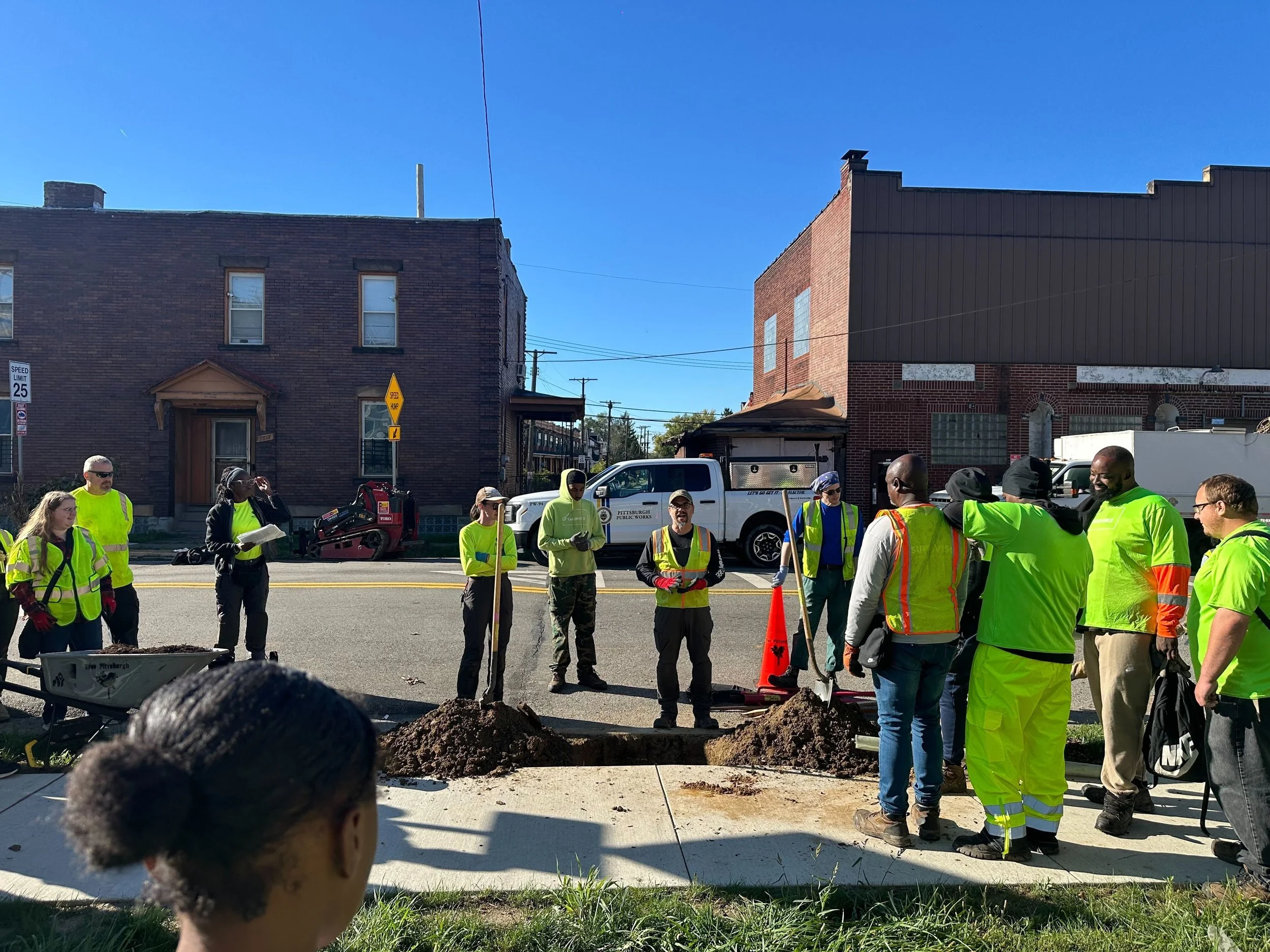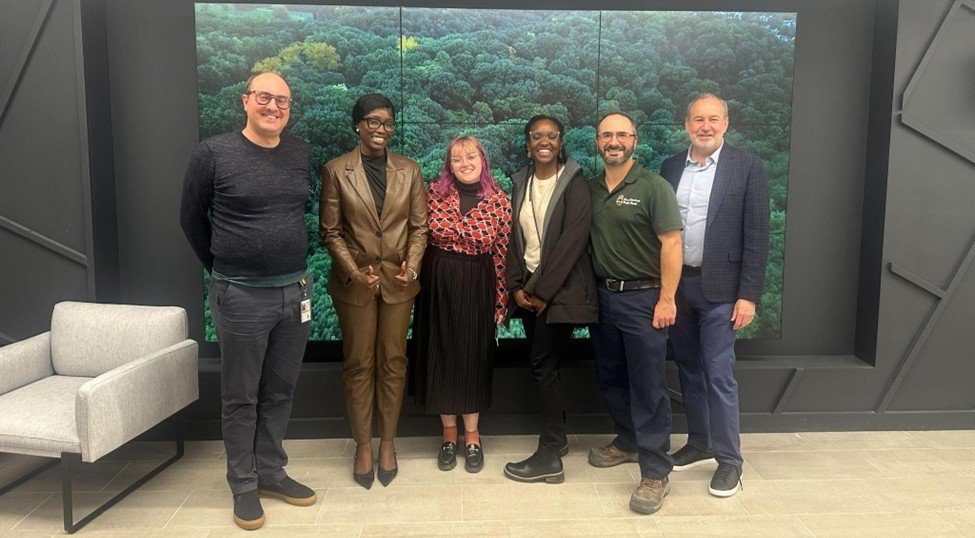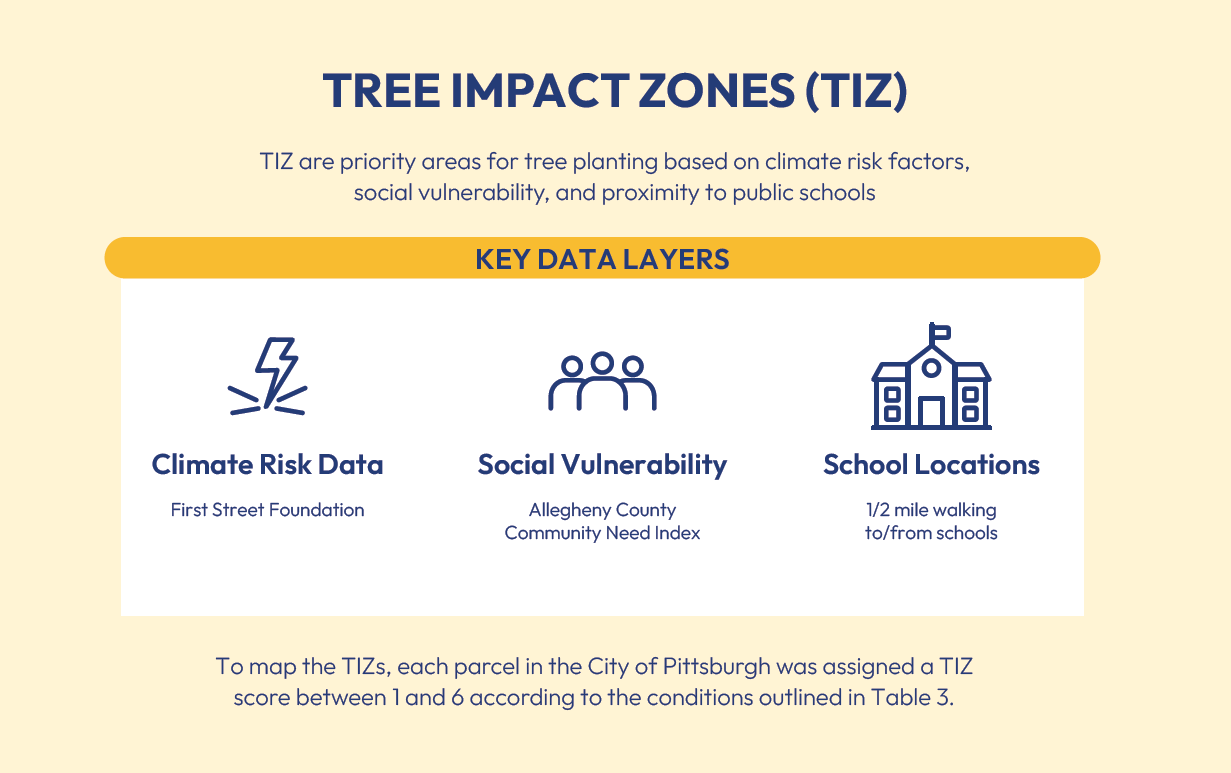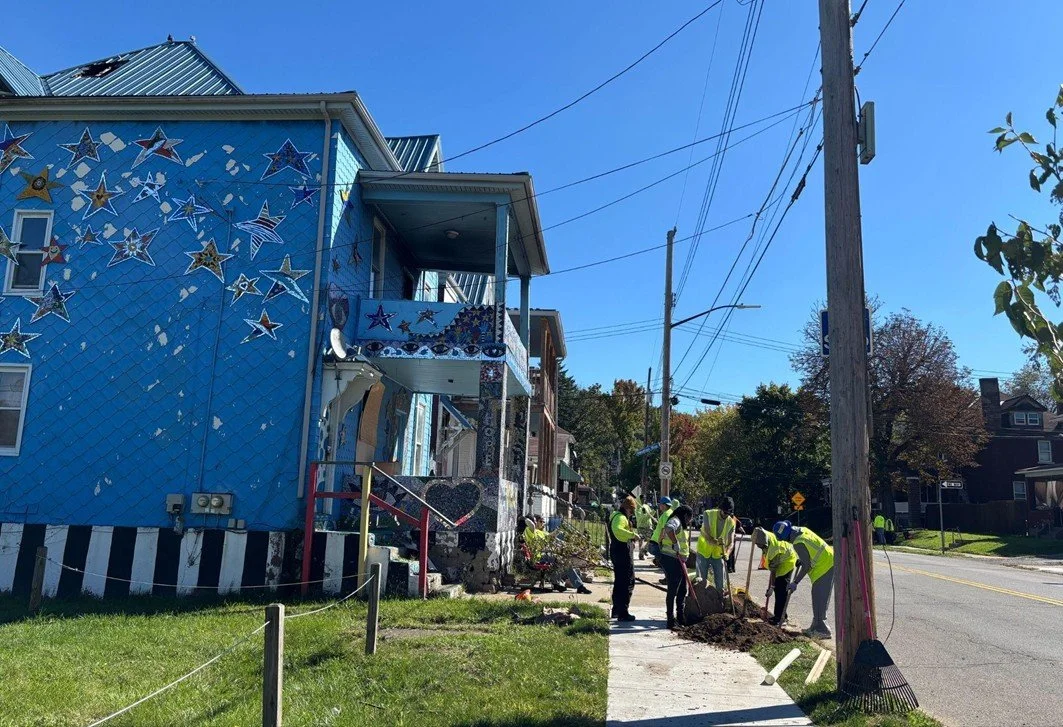Resilience Building in Action
Planting with Purpose: Leveraging Pittsburgh’s Urban Forest for Climate Resilience
Volunteers and project partners receive instructions during a pilot tree planting event in the Homewood neighborhood of Pittsburgh.
Pittsburgh has long identified trees as a priority. Back in 2021, the City publicly stated a goal to plant 100,000 trees by 2030. Likewise, the City’s Climate Action Plan calls for increasing the overall City canopy cover from 42% to 60% by 2030, halting “tree canopy loss due to development,” and using green infrastructure (including trees) to manage stormwater. However, despite these ambitious goals, Allegheny County (where Pittsburgh is located) has been losing close to 2% of its tree canopy every five years since 2010. More than 4,100 acres (~3000 football fields of tree canopy) were lost between 2015-2020.
At the same time, Pittsburgh is facing increasing risks from impacts of climate change. Projections show more than 37 days over 90°F annually by midcentury (a 640% increase from the 1990s) and more than 27,000 properties in the city are at risk of flooding over the next 30 years. Given this reality, the city saw an opportunity to more strategically leverage its urban forest as climate infrastructure. Moreover, the city recognized that its traditional by-request approach to tree planting needed to evolve, as trees were being planted where residents had the time and energy to request them, not necessarily where they were needed most.
Project partners included City of Pittsburgh, Tree Pittsburgh, and Resilient Cities Catalyst staff
Between 2023 and 2025, the City of Pittsburgh partnered with Resilient Cities Catalyst on a project funded by Google.org via ICLEI USA's Climate Action Fund to develop a data-driven, replicable approach for urban forest management that maximized climate resilience benefits. To do so, the City acquired best-in-class climate risk data from First Street Foundation analyzing vulnerabilities to threats such as extreme heat, riverine and rainfall flooding, wildfires, wind, and poor air quality. The First Street Data assesses both current risk and projected risk up to 30 years in the future at the individual property scale. Using this data, combined with social vulnerability data from the Allegheny County Community Need Index and the locations of public schools, RCC and the City’s data team developed the “Tree Impact Zones” methodology for prioritizing tree planting locations based on where they could deliver the greatest climate resilience benefits to vulnerable populations.
RCC and the City of Pittsburgh then partnered with a community-based-organization, Tree Pittsburgh, to carry out pilot tree planting events in Hazelwood, Beltzhoover, and Homewood—neighborhoods with low to medium canopy, high tree opportunity (room for trees in the right of way and on private property), and high heat and flood risk. These events combined community education and outreach—critical to building trust and addressing misinformation around trees—with getting trees in the ground. At the final event in Homewood in October 2025, tree planting was combined with sidewalk replacement in partnership with the City’s Department of Mobility and Infrastructure.
Volunteers and project partners plant a tree during a pilot tree planting event in the Homewood neighborhood of Pittsburgh.
This project outlined a path forward for a more robust urban forestry program for Pittsburgh, treating trees like the critical infrastructure they are. RCC proposed a program that revives the 100,000 tree goal, aiming to plant 10,000 trees in each of the City’s nine council districts in addition to 10,000 trees in the right of way, prioritizing locations within each council district using the Tree Impact Zone methodology. The “10 x 10,000” program, which would cost approximately $50 million over ten years, would include dedicated funds for maintenance and operations. RCC did initial modeling for innovative approaches to funding such a program.
As the City explores avenues for funding and formalizing an expanded tree planting program, the updated standard operating procedures developed through this project and a newly launched Interdepartmental Urban Forestry Working Group are already making a difference in the city’s approach to growing the tree canopy. Likewise, a Municipal Canopy Cohort funded through RCC’s grant and led by The Congress of Neighboring Communities (CONNECT) and Tree Pittsburgh is scaling learnings throughout Allegheny County. By creating clear protocols for using data to guide decisions and modeling how coordination and partnerships can work in practice, this project helped ensure that Pittsburgh is equipped to pursue equitable urban forestry investments that address climate vulnerability across the city’s neighborhoods.




